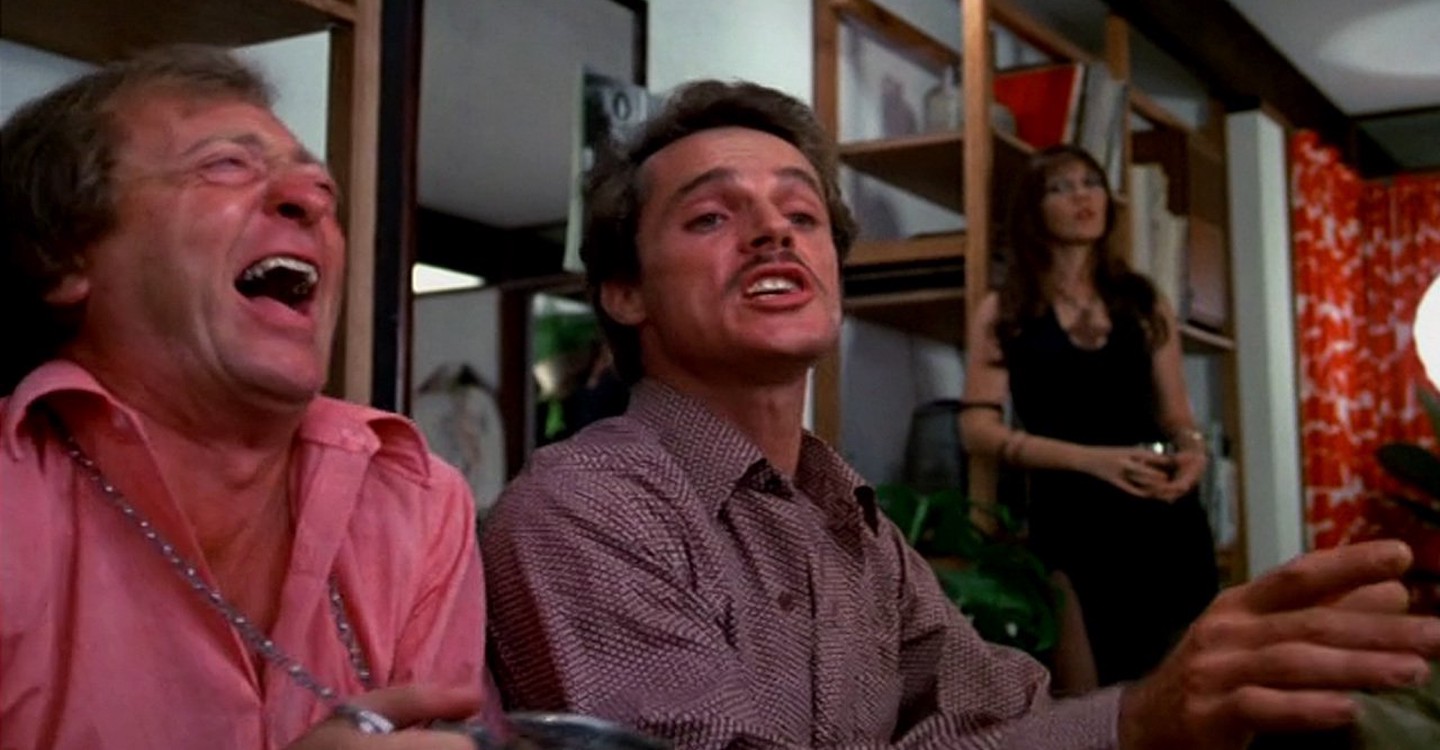Help keep The Curb independent by joining our Patreon.
Originally the plan was to write about Don’s Party before the federal election on the weekend. That didn’t pan out. Perhaps subconsciously I knew that writing about it after the numbers were in would be more piquant, and whatever instinct that was in play turned out to be right. After all, the film is about what happens at an election night party when a widely expected Labor victory turns into a brutal rout in favour of the LNP, and that is certainly what happened on Saturday night. And so here we are in 2019, looking back at the events of 1969 through the lens of a film released in 1976. Are there parallels? Of course. Do they mean anything? Well, who can say?
Directed by Bruce Beresford (Breaker Morant, Ladies in Black) and adapted by David Williamson from his own 1971 stage play, Don’s Party is a simple set up: on election night, schoolteacher Don Henderson (John Hargreaves) and his wife, Kath (Jeanie Drynan) have a few friends around to their suburban Melbourne home (it was actually filmed in Sydney’s North Shore) to celebrate what is assumed to be an Labor lock. As history and the film shows, this was not the case; John Gorton’s Libs thrashed Gough Whitlam’s Labor Party, retaining what was then a 20-year grasp on power. This turn of events, unsurprisingly, does not go down well with the film’s motley collection of Labor pseudo-intellectuals, and as the booze flows freely they soon fall to vicious infighting – and gosh, as of the time of writing, that barely even counts as a metaphor.
What’s striking about Don’s Party is the merciless yet affectionate attitude it holds towards its cast of characters, all of whom are horribly compromised and fundamentally broken people who nonetheless see themselves as part of a kind of intellectual, cultural, and moral elite. Ockerish Don and exhausted, sniping Kath aside, there’s recently divorced, lecherous Mack (Graham Kennedy), married, lecherous Mal (Ray Barrett), and single, lecherous Cooley (Harold Hopkins, and are we seeing a pattern here?).
The women in their lives all indulge their menfolk with varying degrees of exasperation and disdain; Cooley’s 19 year old girlfriend, Susan (Clare Binney), is still largely bright-eyed and excited by the louche posturing of her lover, but Mal’s wife Jenny (Pat Bishop) is bitterly disappointed with her life, as is Kath, while snobbish artist Kerry (Candy Raymond) clearly sees herself as above the pretentious of these suburban would-be sophisticates.
The misogyny on display is an eye-opener from our current perspective, but Williamson and Beresford frame the casual sexism and seemingly endless sexual propositions as pathetic rather than threatening. Amateur pornographer Mack is a sad piece of work, while Mal, a would-be intellectual, is crashingly unaware of his own limitations – only virile, blunt Cooley, younger than the rest of the crowd, comes across as a sexual threat, and he’s a rather alluring one in light of the spent masculinity of his elders.
Indeed, Cooley, who Don and Mal view as a protégé, is more of an affront than the two Liberal supporters who are thrown into the mix, safari-suited Simon (Graeme Blundell) and his wife, Jodie (Veronica Lang). These two, for all that they are intruding from the other side of the factional line, are fairly harmless. Cooley, on the other hand, is young, strong, aggressive, and clearly bucking against the patronising paternalism of his would-be mentors – he’s the future, and he’s angry and disillusioned with the status quo.
Everyone is, really, even if – hell, especially if – they are core that quo. Don’s Party stares hard into the abyss of Australian progressive politics and doesn’t blink, teasing out all the inconsistencies, contradictions, infidelities, and hollow principles. In 2019, all these lecherous losers and bitter harpies would be #canceled, but Beresford and Williamson are a lot more forgiving. They are, after all, looking at themselves, or at least a close representation of the people they were surrounded with and the milieu in which they lived and worked (you could pull Don’s Party out of suburbia and drop it into the Australian arts scene of the period with very few non-cosmetic changes).
That’s perhaps why it works – if this was a conservative satire of Labor mores, it could be dismissed as one-eyed and needlessly savage. However, the creators are standing in the panopticon with us, and so its much harder to dismiss their observations as lacking in context – there’s an honesty at work here that is both disarming and damning. Don’s Party is difficult viewing at times, but its an absolutely essential piece of Australian cinema.
Director: Bruce Beresford
Cast: John Hargreaves, Jeanie Drynan, Graham Kennedy
Writer: David Williamson



